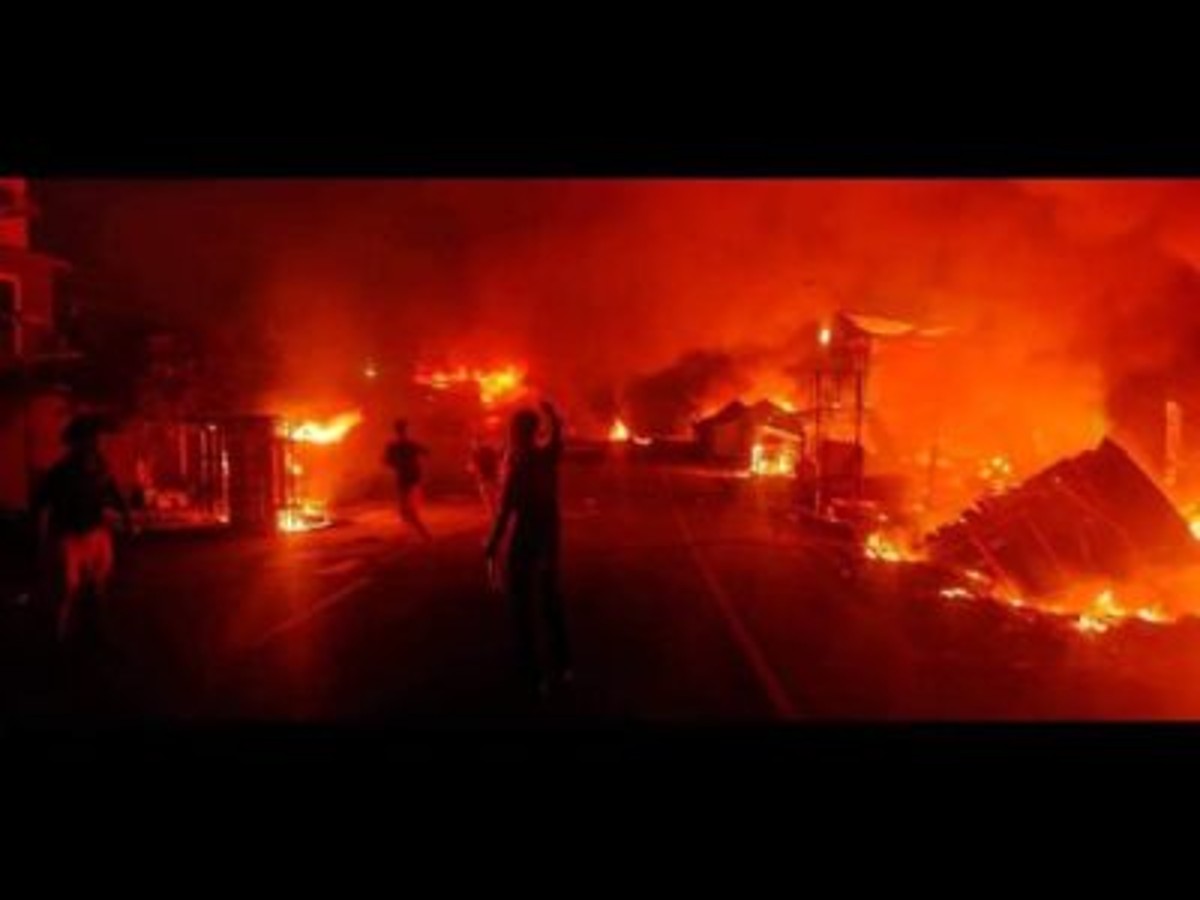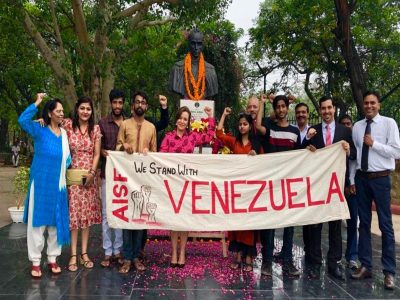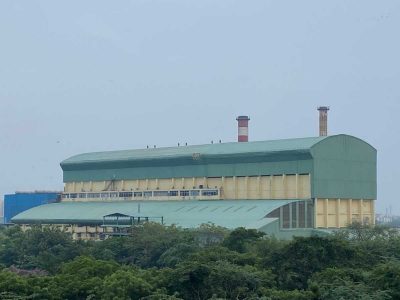Violence between Kuki and Meitei communities in Manipur that has resulted in the death of 71, injury to over 230 people and displacement of thousands has also caused ripples in Delhi.
While the tension between the two communities in the Capital was revealed through an alleged attack on 30 Kuki students by their Meitei counterparts on May 5, an equally big problem faced by Manipur’s student community is the lack of contact with people back home leading to financial problems among other worries.
“Due to the internet ban back home, my parents can’t transfer money so I don’t even have fare for auto and bus. I haven’t attended classes due to lack of money. I also don’t have any relatives in Delhi to bank on. I borrowed some money from friends but I cannot borrow for too long. I am feeling guilty. Some of my friends who live outside [the hostel], have gone back home due to shortage of money since they were unable to pay rent,” a student from Jawaharlal Nehru University (JNU), who is pursuing linguistics, told Patriot.
The Imphal east native, who belongs to the Meitei community, however, said that there is no problem among the student communities of JNU.
“I face no problem in the campus with my Kuki community friends. There is no tension in our campus as has happened in Delhi University. We are also associated with groups trying to maintain peace. We have also collected donations for the victims in Manipur. But I don’t venture out of the campus since I am also not safe. I am also unable to connect with my family. I am feeling mentally harassed,” added the student.
A Ph.D. scholar from IIT Delhi, who is from Kuki community, narrated a harrowing tale about her family back home.
“My elder sister and brother-in-law are in Imphal. A mob of Meitei people attacked her house, so they escaped and took shelter somewhere else. Mobs burned their houses and belongings such as car, scooty, tractor. They couldn’t share with us their actual situation and location, because of no internet connection at that time. Even now, I am unable to talk to them.”
She said that she feels safe on the campus but, like the JNU student, doesn’t want to go out.
“I am safe on the campus. If I go out to the area inhabited by the people from Northeast, I am not sure I will be safe. I will have to take precautions like not speak much. It is better to not go there at all,” she added.
Sunita Chanu, a Manipuri who is working as a social activist in Delhi, told to Patriot about her family, which was also affected by the ongoing violence.
“The situation is very tense. Some rumours and misleading information from the media are also sparking it. Both the communities are attacking each other, their people are getting affected. I also got threats on my WhatsApp and other social media platforms,” she said.
She said that the regular errands are being hard to do and follow.
“People haven’t been able to perform their daily routine work. Electricity bills could not be paid due to lack of internet facility. I have to pay electricity bills of many families from here. Here in Delhi, I can’t even visit the area of my opposite community because of the situation.”
Relationship among the students, however, is not the same as before and they are communicating with each other less after the incident.
A member of the Kuki community, who is a PhD student of law in JNU and also serves as the secretary of Brahmaputra hostel, told Patriot, “There are so many problems. We have no access to connect with the family. Manipur is burning but I don’t have any information about lack of internet. I have many Meitei friends in my class, juniors and seniors too and although there is no tension inside the class, the situation outside is tense.”
Likewise, Twinkle, a PhD scholar in JNU, has been struggling. Her family came to Delhi following the violence and that has added to her responsibilities.
“I am facing many problems after the violence. I do have some Meitei friends but our friendship certainly got affected after violence broke out. We don’t interact or comment much now. I am personally facing financial problems. My family came to Delhi from Imphal on May 6 after the violence. As a result, my responsibilities increased.”
The news of violence from home, and not being able to venture out in areas dominated by Manipuri community has affected her mentally and she is unable to concentrate on her studies.
“I do not go outside the campus. My brother also feels unsafe. When we go out, he takes extra care and is always on alert. It affects me mentally and emotionally. I am deeply disturbed and traumatised. It, of course, impacts my study and I am unable to concentrate. I’m seeing a very uncertain future,” said Twinkle, who belongs to the Kuki community.
Aqil, a student of M.A. (Political Science) in JNU is also one of those struggling financially. His parents from Manipur have stopped sending money.
“The biggest problem I am facing after this violence is on account of money. Due to the shutdown of internet, banking transactions have stopped. So, my parents couldn’t send money to me.
Due to the shortage of money, he couldn’t purchase books for his exams and that has impacted his studies.
“All the books are not available in the library, so my studies have got affected. Generally, I talk to my family via video call but I can’t do it now. My father is a heart patient, I have no idea what is happening in my area because of the internet ban. So, I am mentally upset.”
Aqil has to help students in Manipur fill up application forms for the upcoming exams as they don’t have online access.
“I filled the application form of Union Public Service Commission (UPSC) exam for some relatives. They are not able to recharge their phone, so I am doing it for them. The government may continue to ban social media such as WhatsApp and Facebook but it should remove the ban from banking transactions and google so that students can complete their necessary work and don’t suffer.”
Dixon, another student of Manipur in Delhi who belongs to the Meitei tribe, blames the government for the fracas.
“I returned to Delhi from Manipur on May 7 and lived in isolation. While in Manipur, I visited some doctor friends working in relief camps in the countryside. Meitei people have been displaced from the areas. But in Imphal, churches and homes of Kuki communities have been burned down. Everything is affected.”
He said the situation has returned to normal in Imphal due to the deployment of army and other forces but not in the countryside as not enough military is being deployed there.
“Problem is the planning and obviously the government is responsible.”
Students from the border state of Mizoram were also feeling the heat of the clash.
A research scholar from Mizoram in Delhi told Patriot, “It has affected me mentally and emotionally. We are a very closely-knit society with Manipur Kuki communities and they are more affected there. It has been troubling for us.”
Violent clashes had broken out in the Northeast state of Manipur after a ‘Tribal Solidarity March’ was organised in the first week of May to protest against the Meitei community’s demand for Scheduled Tribe (ST) status, which still continues in many areas.
All activities like banking, e-commerce, payments of e-bills, e-tickets, businesses, work from home, education, and many other essential services have come to a grinding halt.
The state government, however, is claiming that the situation is improving in the state.





